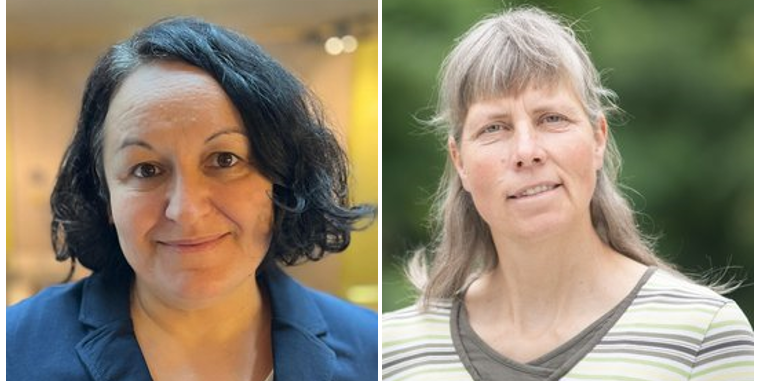Dr Monika Korte, head of Section 2.3 “Geomagnetism”, and Dr Sanja Panovska, working group leader in the same section, were highlighted by the Tagesspiegel, one of Germany's major daily newspapers, in its series “100 Heads of Capital City Science”. Under the motto “Diversity, courage and new ideas in Berlin research”, 100 “influential” researchers from the region were presented in brief portraits with their most important research topics from 29 September to 10 October, grouped into ten thematic areas. The short texts and portrait photos appeared in print, online and on the social media channels of the Tagesspiegel (paywall may apply).
The two GFZ researchers appeared in the section “Sun, Moon and Black Holes: These Researchers Shed Light on Planetary Systems”. The editors asked: “What does space have to do with life here on Earth?”
Monika Korte was presented with her ERC Synergy Grant project GERACLE.
In this project, she and her international colleagues are investigating the effects of past and possible future reversals and polarity swings of the Earth's magnetic field on our habitat. The results of the project will not only provide information about specific polarity reversal events in the Earth's history, but also important insights into the Sun-Earth relationship during significant changes in the Earth's magnetic field and into the assessment of future space weather hazards resulting from these changes.
Sanja Panovska was presented with her ERC Consolidator Grant project EXCURSION.
In it, she seeks answers to important questions about geomagnetic excursions over the last 780,000 years. These periods of events, during which the Earth's magnetic field weakens and can even develop more than two poles, reduce the Earth's protection from solar and cosmic radiation, which can have a significant impact on technology and possibly on the environment and climate.
